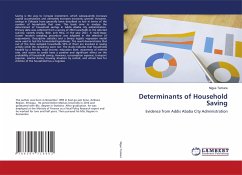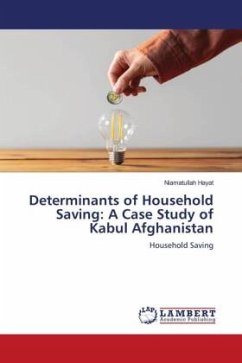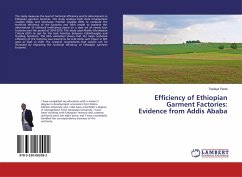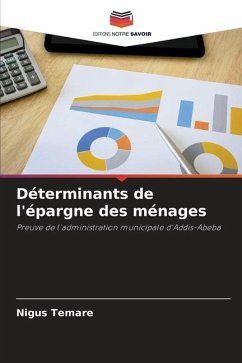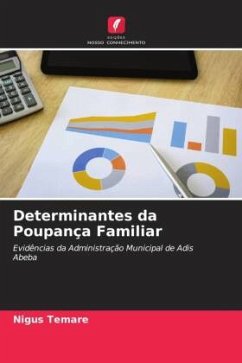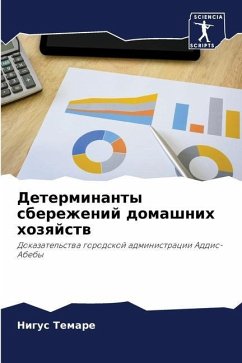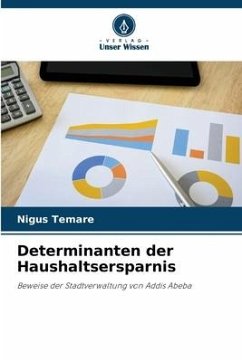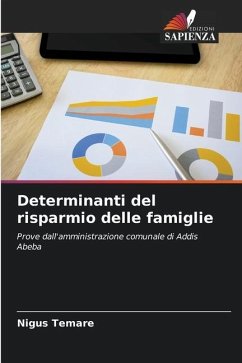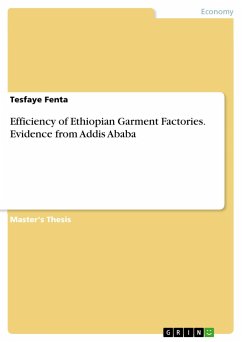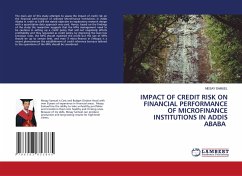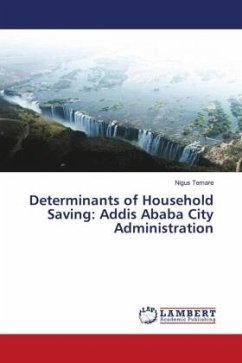
Determinants of Household Saving: Addis Ababa City Administration
Versandkostenfrei!
Versandfertig in 6-10 Tagen
40,99 €
inkl. MwSt.

PAYBACK Punkte
20 °P sammeln!
Saving is the way to increase investment, which subsequently increases capital accumulation and ultimately increases economic growth. However, savings in Ethiopia have generally been described as low in terms of the number of households that save. This book aims to analyze the determinant of household savings in Addis Ababa city administration. Primary data was collected from a survey of 256 households in the selected sub-city, namely Arada, Bole, and Yeka, in the year 2021. A multi-stage cluster random sampling procedure was adopted in the selection of respondents. Descriptive statistics and ...
Saving is the way to increase investment, which subsequently increases capital accumulation and ultimately increases economic growth. However, savings in Ethiopia have generally been described as low in terms of the number of households that save. This book aims to analyze the determinant of household savings in Addis Ababa city administration. Primary data was collected from a survey of 256 households in the selected sub-city, namely Arada, Bole, and Yeka, in the year 2021. A multi-stage cluster random sampling procedure was adopted in the selection of respondents. Descriptive statistics and a binary logistic regression model were used to test the formulated hypotheses. The result demonstrates that out of the total sampled households 52% of them are involved in saving activity while the remaining were not.



